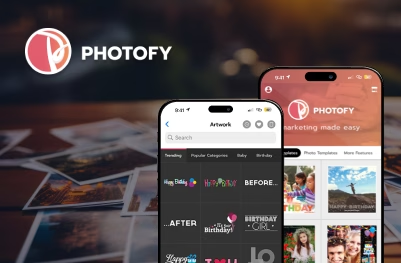- Developers
- Developer Blog
- Blockchain Development
- How Can Blockchain Improve The Food Industry?

profile

By Aran Davies
Verified Expert
9 years of experience
Aran Davies is a full-stack software development engineer and tech writer with experience in Web and Mobile technologies. He is a tech nomad and has seen it all.
Wondering how can blockchain improve the food industry? This is a great topic that we will cover here.
In this article
- Blockchain in the Food Industry
- Blockchain In Food Safety
- Using Blockchain for Preventing Fraud
- Blockchain for Product Labeling
- Speeding Up Payments Throughout the Supply Chain
- Final Thoughts on Blockchain in the Food Industry
Blockchain in the Food Industry
Bacterial contamination is only one of the risks that our food faces. This article relating to the 10 Biggest Food Recalls in U.S. History highlights some of the other problems. These include:
- Food containing products other than those claimed (horse meat, non-halal, organic food, etc.)
- Products from origins other than stated.
- Incorrect dates/production information.
- Producers not maintaining adequate food production/animal humane standards.
Few people are aware of the true scope of the problem and just how regularly serious problems arise. Take a look at the United States Department of Agriculture‘s ’Current Recalls and Alerts‘ page and you will see just how often recalls are made.
Each recall is in response to a potentially life-threatening problem. The food industry and government watchdogs, therefore, have enormous pressure on their shoulders to get unsafe products off store shelves and out of people‘s homes.
This poses yet more problems like traceability. Thankfully, many of these problems can be addressed by the implementation of blockchain solutions.
The global food supply chain is massive. Each year, a staggering 4 billion tons of food gets produced, roughly one-third or 1.3 billion tons of which gets lost or thrown away.
Here is how blockchain provides a solution to problems in the food industry.
Blockchain In Food Safety
The World Health Organization estimated that 582 million people all over the world suffered from some form of food poisoning in 2010. This figure meant that approximately 1 out of every 14 people were affected, some of whom died as a consequence.
The need for improved accountability regarding the way that food is produced and makes its way through the supply chain is more important than ever. Nearly every human being on the plant is now reliant on the global food supply chain.

Get a complimentary discovery call and a free ballpark estimate for your project
Trusted by 100x of startups and companies like
Everything from supply chain management to product recalls will benefit from blockchain.
Food traceability blockchain solutions will allow a food manufacturer to be able to guarantee food system authenticity and also to reduce food wastage.
A blockchain solution can be used to track food products from their source right the way through the supply chain network.
Imagine a case where a farmer initiates the creation of a new blockchain after harvesting their crop. Essential information such as time, date, location, and even the types of fertilizers/pesticides used during production could be recorded in the database.
Next, as the goods are received by the transportation company, details such as time of collection, transportation time, and the details of the driver and vehicle could all be recorded.
Another block could be added as the goods make it to the warehouse for processing to record all essential data. This process would then continue as the products made their way through the entire food chain to the supermarkets.
Even if a product was used as an ingredient in some processed food, the entire contents of its blockchain could be added to a new blockchain for that particularly processed food. This way, there would be complete transparency regarding where products have come from, where they have been, and what factors/vehicles they have come into contact with.
This way, should there be a scare regarding contaminated food, especially raw materials, producers will be able to track food supply chains and trace all the affected food products in a matter of minutes.
Nestlé, Unilever, and Walmart are all piloting blockchain-based supply chain solutions for this very reason.
Frank Yiannas, Walmart‘s VP of food safety, green-lighted a test of the companies existing systems to see how long it would take to trace a packet of mangos to the farm that they came from. He was stunned to discover that it took nearly seven days to track the produce using faxes, emails, and telephone calls.
After this, Walmart tested a blockchain supply chain that had been developed by IBM. They found that they were able to track the same mangos in just 2.2 seconds. For any doubters, the case to use blockchain to improve food safety was sealed.
Using Blockchain for Preventing Fraud
Problems relating to fraud begin and end with data accuracy. Having a completely transparent supply chain that offers accountability at every stage, can and will prevent and reduce food fraud. The advent of specialist food tests that detect any foreign matter in food will mean that such illegal actions can be detected while food is still in the supply chain.
Blockchain supply chain solutions could be integrated with smart contracts that would require random tests to be performed at various stages of the supply chain. If produce was found to be not 100% original, the blockchain system would refuse to allow it to continue any further down the supply chain until it had been checked out.
Hire expert developers for your next project
1,200 top developers
us since 2016
Every individual/company that is involved in the supply chain would have their role recorded in the blockchain. Therefore, if a batch of food was found to have been interfered with, it would only take a matter of seconds to pinpoint the guilty party.
To prevent food fraud using blockchain would be a relatively simple system to put in place. With very little investment, a viable blockchain solution could be easily set up using mostly existing hardware.
Such as system would have prevented the cases of fraud that resulted in the UK‘s 2013 Horse Meat Scandal and the Halal Meat Turkey Fraud.
Blockchain for Product Labeling
I have already touched on how blockchain could be used to record supplier information. This information is important for the following reasons:
- Gives consumers trust regarding the authenticity of their food
- Enables complete industry transparency which benefits both producers and consumers
- Allows consumers to select their preferred producers accurately (fair trade goods, etc.)
- Helps trace food to suppliers
- Facilitates full accountability
- Prevents fraud
Another advantage is improved food labeling. Adding supplier information and being able to create more accurate use-by dates for products will help consumers make the right choices.
Were supermarkets to give consumers access to supply chain information, they would be able to confidently access where their food was coming from.
One potential way this will benefit consumers is with fair trade produce.
At the current time, consumers must be satisfied with some vague information as to where the foodstuff was produced. Accurate information relating to the producer could help fair-trade consumers actually take part in more precise campaigns that could help specific regions or producers.
This would be a powerful tool to help farmers get back on their feet after a poor harvest year or a natural disaster, etc. Blockchain supply chain solutions could spark the very first global buy regional fair trade movements.
Speeding Up Payments Throughout the Supply Chain
Anyone who has ever been part of a supply chain will know that payments are a real frustration at times. Usually, this means allocating staff to creating invoices and chasing down missing payments, etc.
The reason payments take so long is that companies are required to recheck to see that goods have been received before paying invoices. For multinational companies, the sheer volume of paperwork can be overwhelming.
The implementation of smart contracts into food industry supply chain blockchain solutions will allow the automation of payments. Terms and conditions can be preprogrammed into a smart contract meaning that once this set of conditions is satisfied (good delivered and signed for), the smart contract could automatically initiate payment to the sender.
This would, in effect, put an end to the need for a large number of accountants to process invoices, while also reducing errors too.
Hire expert developers for your next project
Final Thoughts on Blockchain in the Food Industry
Blockchain technology is set to transform the food industry. One only needs to take the example of the IBM supply chain blockchain solution, called IBM food trust, being tested by Walmart to see just how.
The real question is how long it will take before blockchain becomes an industry standard. The technology is still relatively new and faces many hurdles before it can become the solution to many of the problems that it is currently being developed to solve.
It seems that we are less than a few years before the first supply chain blockchain is fully implemented. After this has happened, more and more companies will race to jump on board.
This will be a positive feedback cycle as it will speed development and create an even bigger need as the solutions get more and more sophisticated. So, blockchain in the food industry will soon be a must.
If you, as a business owner, are planning to incorporate blockchain solutions into your business processes, you are making a good decision given the benefits of blockchain technology. However, you are going to need expert blockchain developers to go through the process of blockchain development successfully.
Read our guide on finding competent blockchain developers.
If you are still looking for blockchain software development partners, DevTeam.Space can help you here. Write to us your initial blockchain solution specifications via this quick form and one of our technical managers will get back to you to discuss further details.
DevTeam.Space is an innovative American software development company with over 99% project success rate. DevTeam.Space builds reliable and scalable custom software applications, mobile apps, websites, live-streaming software applications, speech recognition systems, ChatGPT and AI-powered solutions, and IoT solutions and conducts complex software integrations for various industries, including finance, hospitality, healthcare, music, entertainment, gaming, e-commerce, banking, construction, and education software solutions on time and budget.
DevTeam.Space supports its clients with business analysts and dedicated tech account managers who monitor tech innovations and new developments and help our clients design, architect, and develop applications that will be relevant and easily upgradeable in the years to come.
Frequently Asked Questions
The main industry that stands to benefit from blockchain is the finance industry. Other industries will be any that use supply chains such as the medical industry.
The food industry is going to see its supply chains revolutionized by blockchain technologies. Immutable records will help ensuring food safety standards, reduce food waste along with accurate use-by dates, etc.
Blockchain is decentralized meaning that it stores data on multiple nodes and no one authority controls the network. An offshoot to this is that data requires 51% of the network to alter, meaning that it is immutable and far more trustworthy.

Alexey Semeney
Founder of DevTeam.Space
Hire Alexey and His Team To Build a Great Product
Alexey is the founder of DevTeam.Space. He is award nominee among TOP 26 mentors of FI's 'Global Startup Mentor Awards'.
Alexey is Expert Startup Review Panel member and advices the oldest angel investment group in Silicon Valley on products investment deals.


